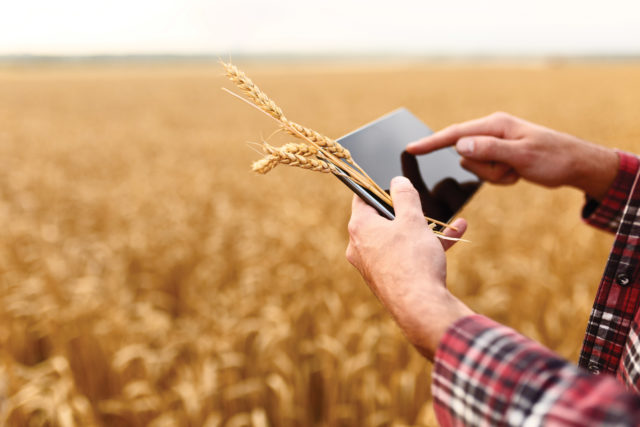
By Brianna Elliot
In the summer of 2018, Olds College launched the Smart Farm, an exciting initiative that is transforming the College’s existing farm into a farm of the future by integrating the latest technologies aimed at improving productivity, while efficiently and sustainably using resources.
The Smart Farm’s goal is to be a place for producers, partners and students to look at the opportunities and challenges facing the agriculture industry and explore solutions to evolve agriculture practices. Through our validation projects and validation capacity, Olds College Smart Farm provides an unbiased source of information on emerging new technology products coming on the market. By testing and comparing these technologies, such as a field sensor, we can find out how these products work, if they have a place in this cropping system, and determine if there is a positive return on investment.
Many new technologies offer analytics within their systems. With that comes big questions, such as “Is it accurate and reliable information?” and “Why should I trust what this technology is telling me?” It’s our focus to answer these questions by evaluating the technology to see if they are in fact a valid source and tool that will enable you to improve your operation. Many of the companies make claims that their product will save X amount per acre but they haven’t been tested and validated here in Western Canada. With incorporating the use of these products into the Smart Farm, it enables us to see how they work on our crops, in our soils and with our climate and ever-changing growing conditions. The way a soil sensor or micro-climate sensor may be used in a crop under irrigation in a different soil type, may be completely different in our dryland cropping system and therefore effecting its capability and value to the operation.
The Smart Farm is incorporating farm management software platforms to collect, store, visualize production and management data, while utilizing data analytics to turn data into information and information into knowledge. We are using this on the farm to make more timely and informed decisions as well as managing the data in a way that doesn’t leave countless spreadsheets sitting unused on your desktop. Today, producers are experiencing gaps between the collection of data and application of this data. We are working to fill those gaps. There are no one size fits all strategy as every operation is different, so you have to find a system that works for you. We aim to take some of the ground work out of that by testing these technologies out here on the Smart Farm. An effective technology strategy is key for producers to be successful in today’s market.
The final goal is to collect and implement the best agriculture technologies on the Smart Farm, demonstrate increased efficiency of farming operations through implementation of smart ag technologies, and utilize the Smart Farm infrastructure for world class education, demonstration and applied research.
You can find more information on current Smart Farm projects online on the Olds College website as well in future publications where we will be sharing our findings.










